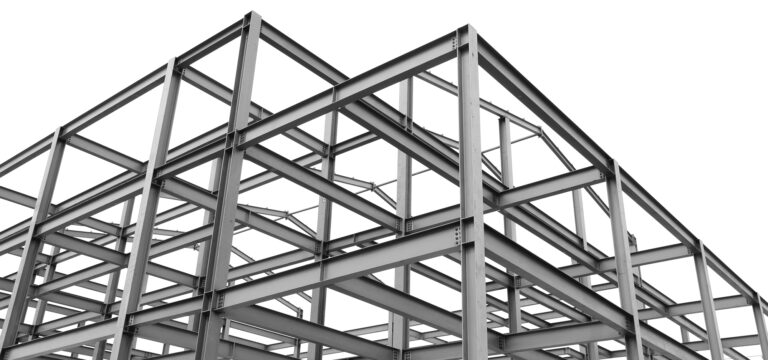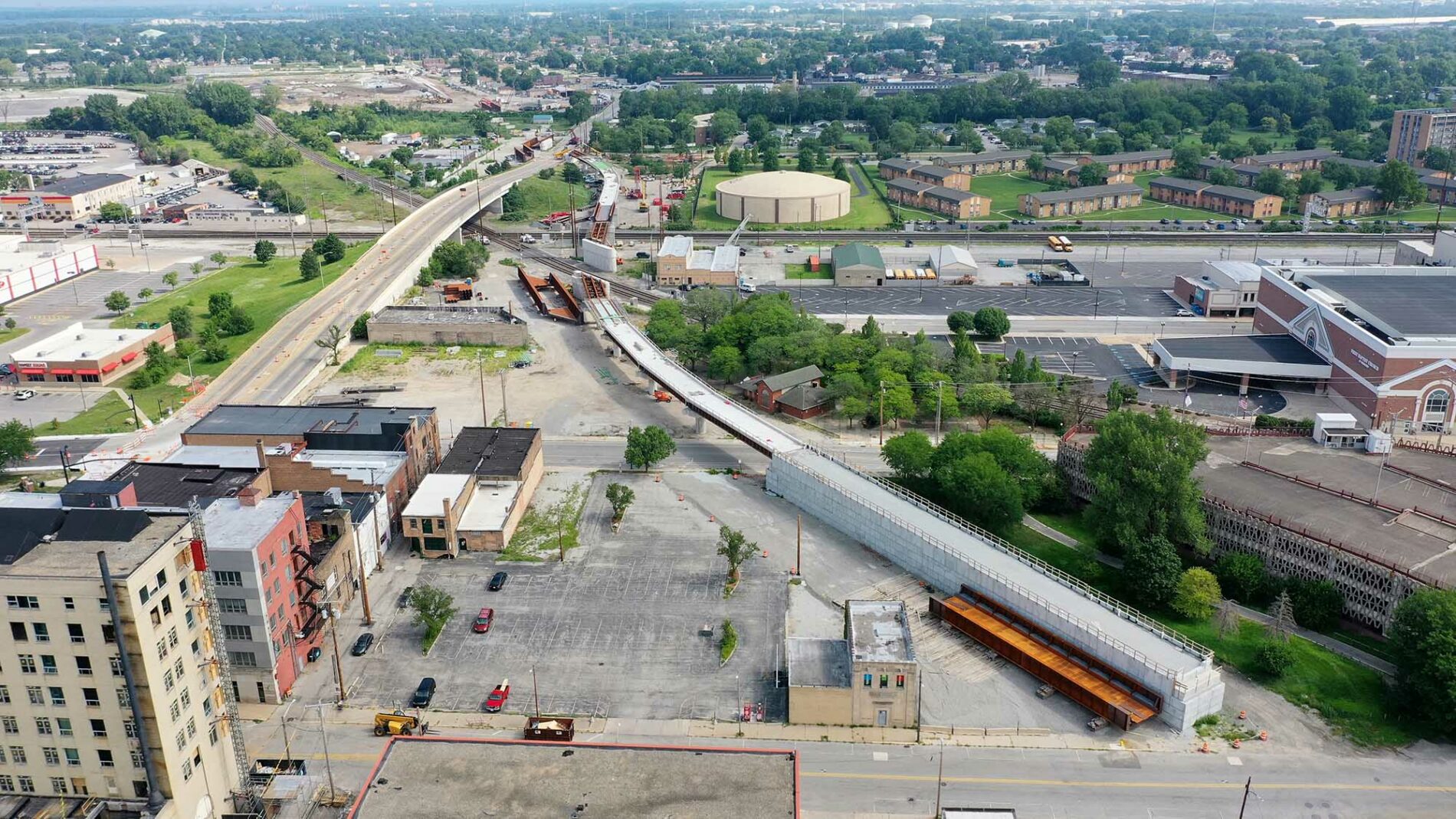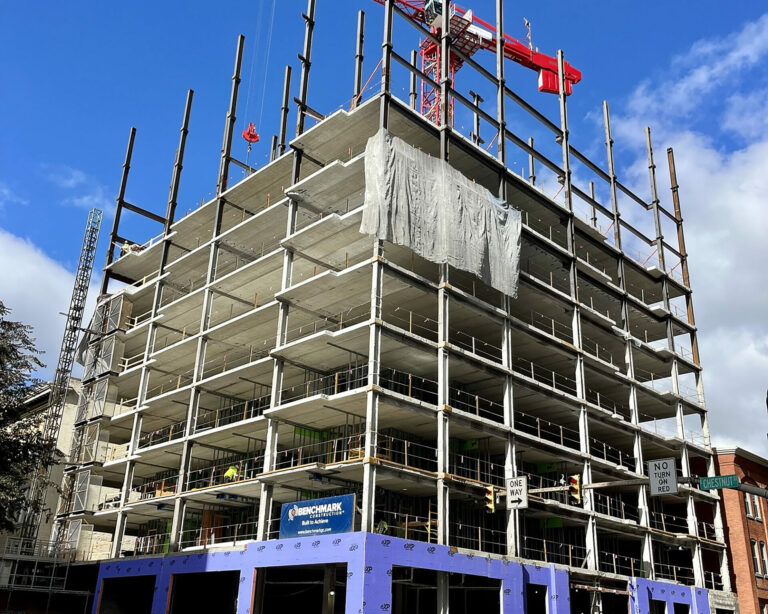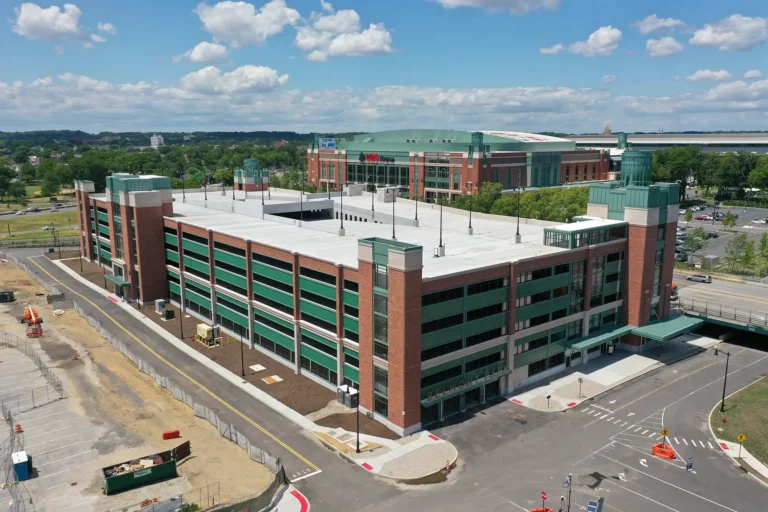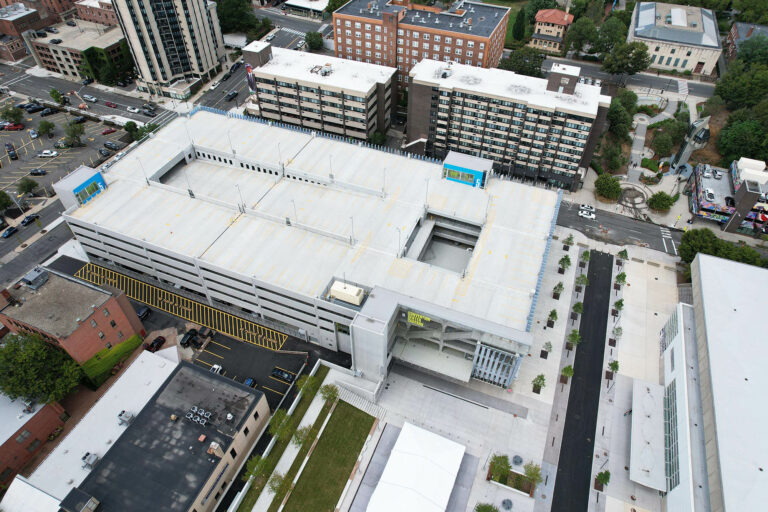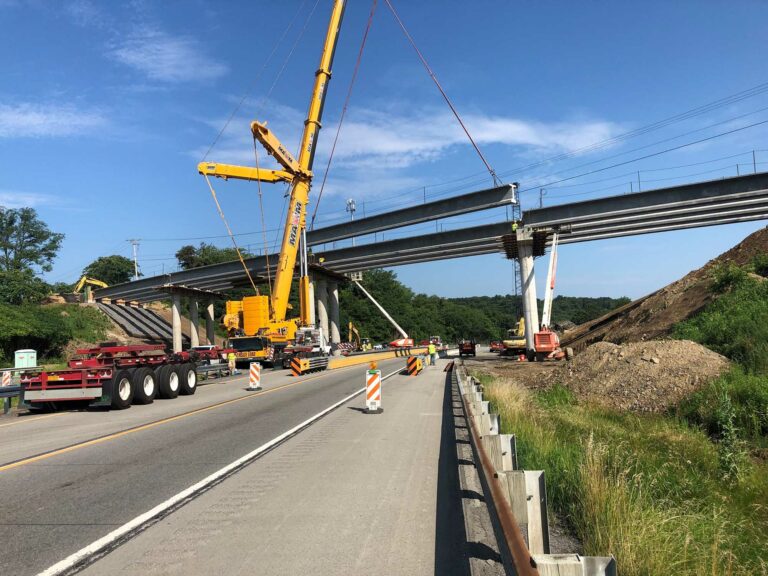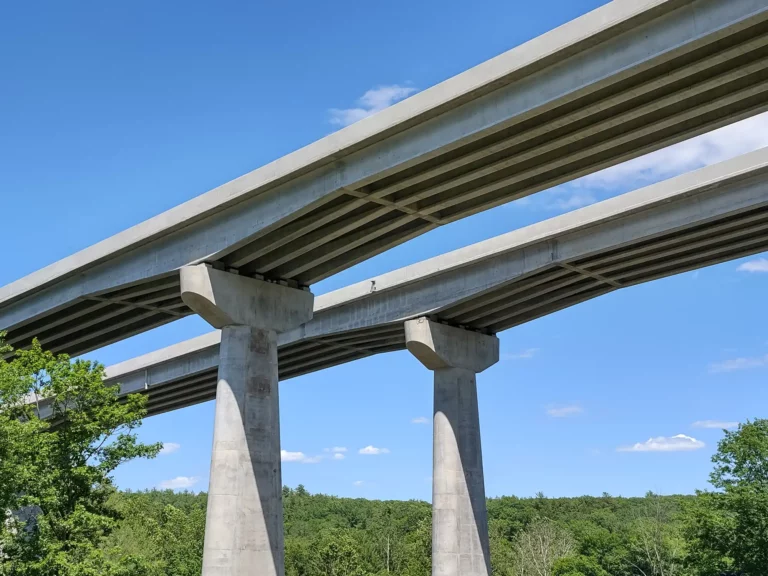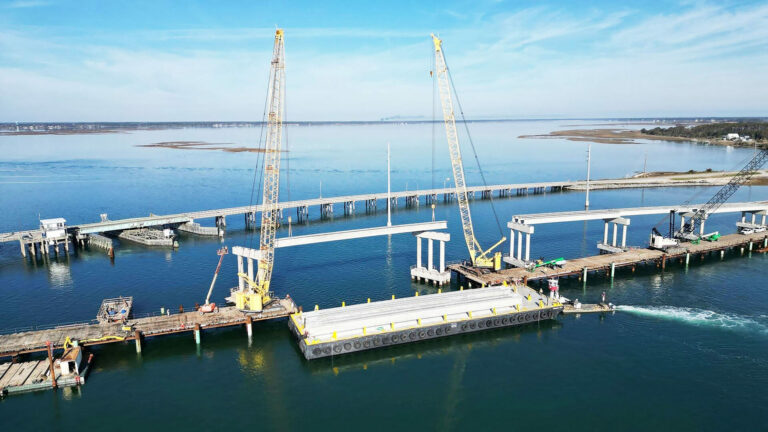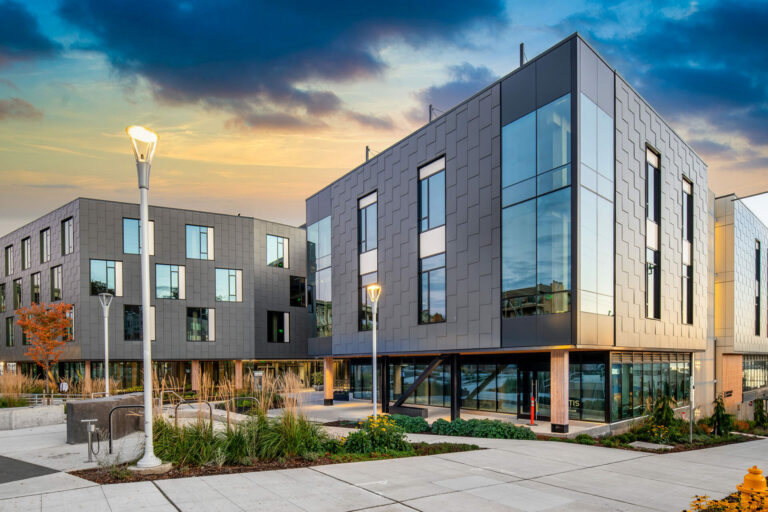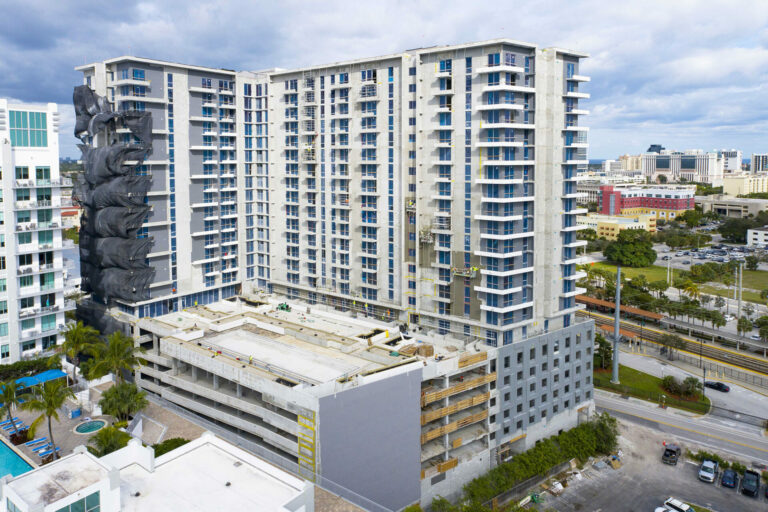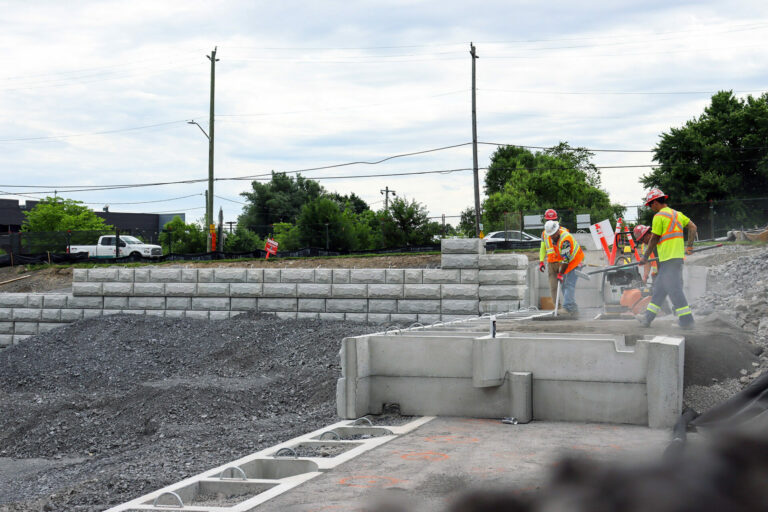United Concrete Products Inc. (UCP) is continuing to expand its precast concrete footprint as the company finds innovative ways to serve customers with its infrastructure products.
The 70-year-old company is a key member of the Palisades Tunnel Project, which is building two tunnels on the New Jersey banks of the Hudson River. Palisades is part of the much larger Hudson Tunnel Project, which as the name implies, will build a new tunnel – with Precast Concrete Tunnel Lining Segments – for passenger rail trains underneath the river.
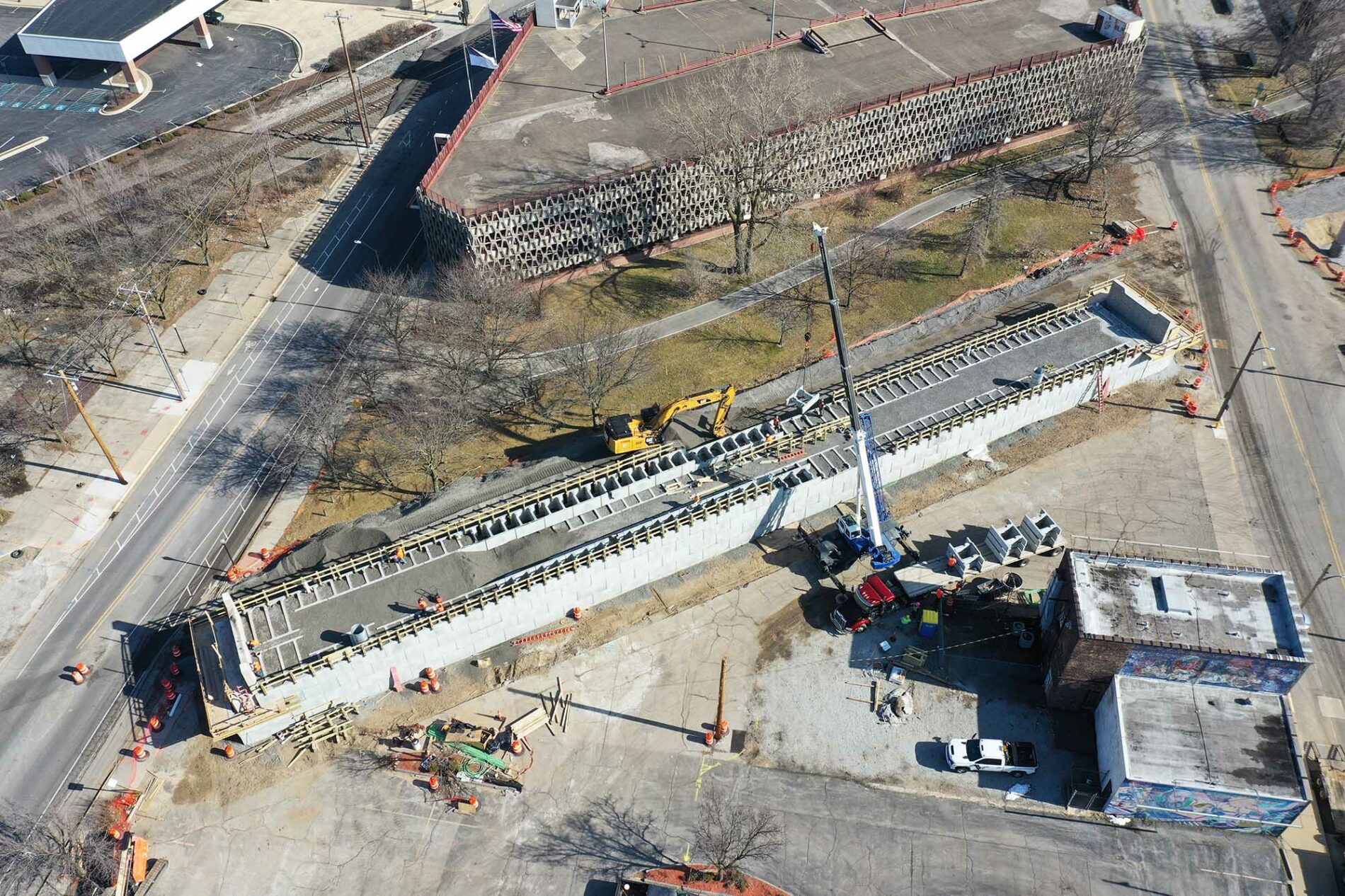
“We’re doing a major plant expansion to accommodate this project as well as expanding some of our other product lines,” said Mathew Mastrogiacomo, vice-president for the Yalesville, Conn. company, based just south of Hartford.
“We’re expanding into more micro tunneling, jacking pipe that goes along with the underground portion of what we do, as well as expanding our capabilities in the Accelerated Bridge Construction sector” said Chris Moore, senior vice-president of UCP. “We’re shipping projects to Chicago O’Hare, and all across the Eastern Seaboard. We’re expanding that [underground] division right now, and that’s our focal point.
UCP’s approach is emblematic of how the company has continued to evolve after three quarters of a century in the business. First established in 1954, UCP made its name working as a basic precaster of septic tanks, stairs, catch basins and manholes, among other products. Norm Gavin purchased the company in 1978 and in 2000, his son Jon purchased the company and took over as president.
“Jon wasn’t satisfied with Just continuing to produce the basic concrete components and had a bigger vision of what United could become,” Moore said. “The precast industry as a whole, around that time, started changing as well, as the traditional cast-in-place concrete construction items were being converted to precast”
The younger Gavin, who Moore describes as a “very mechanical-minded person”, leveraged his and the company’s strengths to accommodate the growing demand for precast. Since that time, the company has only continued its steady growth: From only one facility and 70 employees back in 2000 to six facilities and almost 300 employees today, a fourfold increase from the 70 folks it employed 25 years ago.
Customer service, naturally, is at the heart of what they do – starting with the ability to give clients a “one-stop shop” for all precast concrete needs. “We do everything,” said Christian Moore, UCP senior vice-president. “Your drainage, your sanitary sewer, the basic components underground, and then we start getting into the more customized complex products: box culverts, three-sided bridges and arches, etc.”
Mastrogiacomo added that a contractor can get all the components that are required for their project. UCP backs that up with commitment: a recent Department of Transportation project for Rhode Island, for example, saw the company shipping product 24 hours a day, placing oversight on the job site overnight, and deploying project managers and salespeople at all hours needed to support work.
“All hands were on deck for this job,” Mastrogiacomo said. “That is a big reason why the customer teamed up with us during this design-build phase. [They knew] that no matter what, if there were issues, we’d solve them. We keep that project moving. It’s a team effort.”
Aside from Palisades and the underground-project pivot, UCP pointed to three other recent efforts that have showcased the company’s capabilities to serve customers with its one-stop shopping and customer service.
The Boston Sumner Tunnel
This East Boston thoroughfare is vital to the city, as it brings traffic from Logan International Airport through to Route 1A. The tunnel was built in the early 1930s. After 90 years of service, “it was deteriorating, and they needed a solution to keep that tunnel open and usable,” Mastrogiacomo said.
“When the job was still an idea, we worked with the engineers and tried to come up with ideas with them to figure out how they could come up with a solution,” Mastrogiacomo continued. “Basically, what ended up being the solution was to line the tunnel with precast arch segments.”
Adding challenge was the consortium did not want to reduce interior space in the tunnel, as it was an already tight corridor. So the existing cast-in-place concrete was scoured all the way back to the rebar.
The design was “basically a potato-chip” lining, as Moore recalled, UCP then manufactured 788 arch liners that were lifted into the existing tunnel. UCP also designed and built steel frames themselves, with their in-house fabrication shop, to stop the arches from collapsing under their own weight until each piece was carefully slotted into the tunnel.
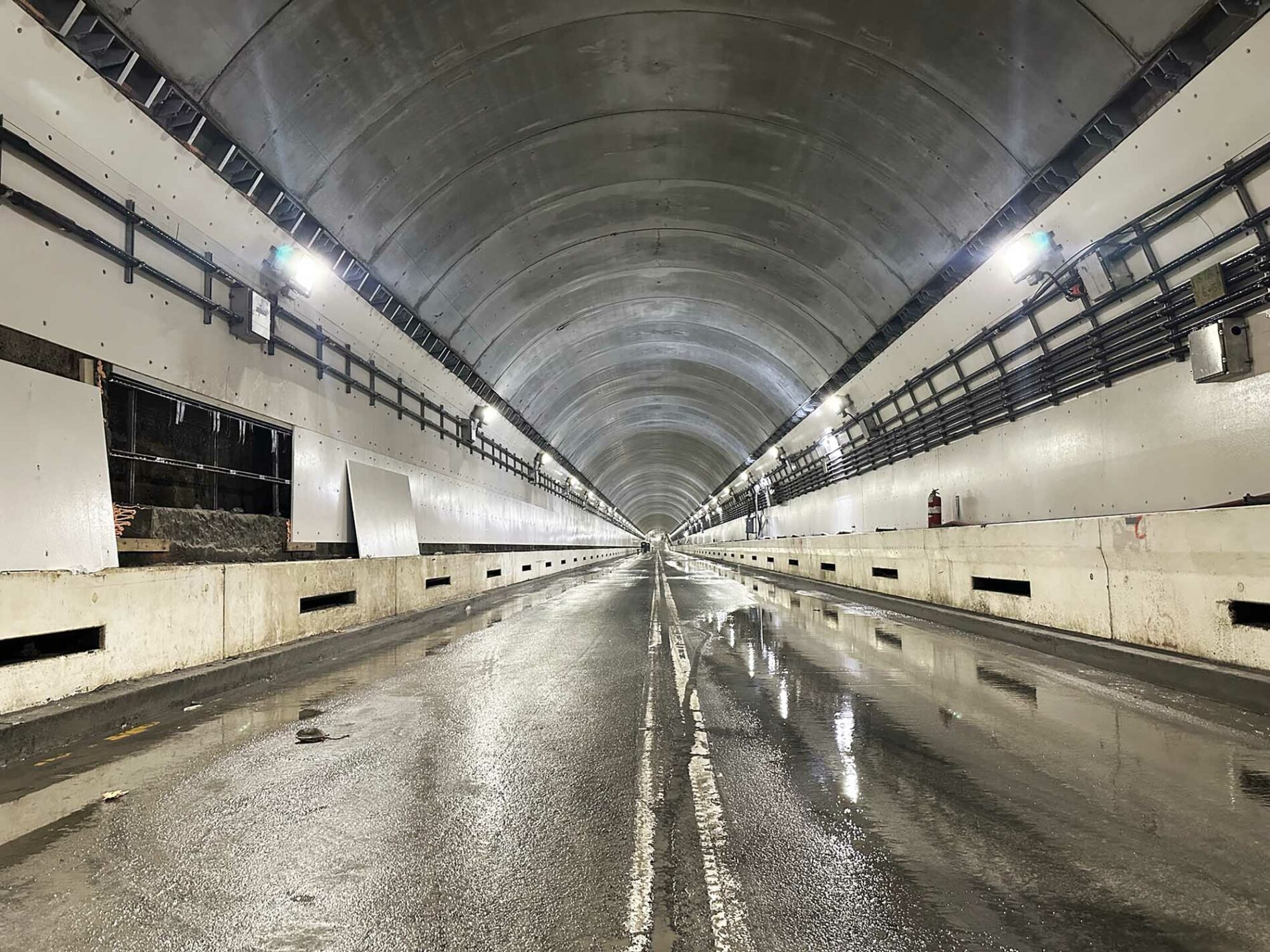
Pine Street Bridge
The Rhode Island Department of Transportation commissioned the Pine Street Bridge as a rapid ABC Bridge replacement project. An older structure, connecting one side of Interstate 95 to the other, was deemed at risk of structural failure. The department wanted to have the bridge replaced in less than 120 calendar days; all the contractors working on it safely beat the mark by a month, allowing traffic to reflow only about 90 days later.
“We made every single piece and part of that bridge precast,” Mastrogiacomo explained, adding the project was refined ahead of time through continuous discussions with the contractor to determine how to create parts that were shippable.
“We built the footings, the abutments, the abutment caps, the center piers, the columns, the footings for the center pier, and … the PBUs [precast bridge units] that make up the actual bridge,” he said. Each PBU is built up from two steel beams that are connected together and supplied by the client. UCP cast the precast deck slab over the top, to the camber of the roadway that was required.
“We built the footings, the abutments, the abutment caps, the center piers, the columns, the footings for the center pier, and … the PBUs [precast bridge units] that make up the actual bridge.”
This unit was shipped to the site as a self-contained product, allowing workers on-site to set everything in place with a minimum of finishing. “There’s a closure pour-in between the units, and they’re off and running,” Mastrogiacomo said, noting that elements of the substructure – the abutments and footings, for example – were easily put together as “puzzle pieces” with NMB Splice Sleeves.
West Lake Corridor
The Northern Indiana Commuter Transportation District is working to build an underground commuter line, known as the West Lake Corridor. When completed, this will connect the commuter hubs of Chicago and Hammond, Indiana with two smaller centers in Indiana – Munster and Dyer.
UCP has contributed its Proprietary Doublewal retaining-wall product to the project. Doublewal is a dual-wall Gravity Wall System with reinforced concrete modules that are both precast and interlocking. This construction approach allows for significant cost savings over traditional in-place concrete or similar products, and has usage for not only retaining walls, but also wingwalls, bridge abutments, and marine applications such as seawalls, dams and piers.
The corridor required 270,000 square feet of retaining wall – which is something like the equivalent square footage of 125 typical new-construction homes. With Doublewal being used in such a large expanse, UCP anticipates West Lake will be a project of note for future customers to consider. West Lake will see Doublewal being used at every crossing, to support the train tracks.
In addition to building a culture that is focused on continuous learning, UCP’s success also comes through strong collaborative processes. Through its extensive shipping network, products such as Jacking pipe, micro tunneling pipe, tunnel lining segments and Doublewal, are shippable right across the United States.
“We’re surrounded by a lot of smart people who are driven – who ‘bleed United’, for lack of better terms,” Moore said. “We’re engineers by schooling, but a lot of the people here will do whatever it takes to get projects done.”








